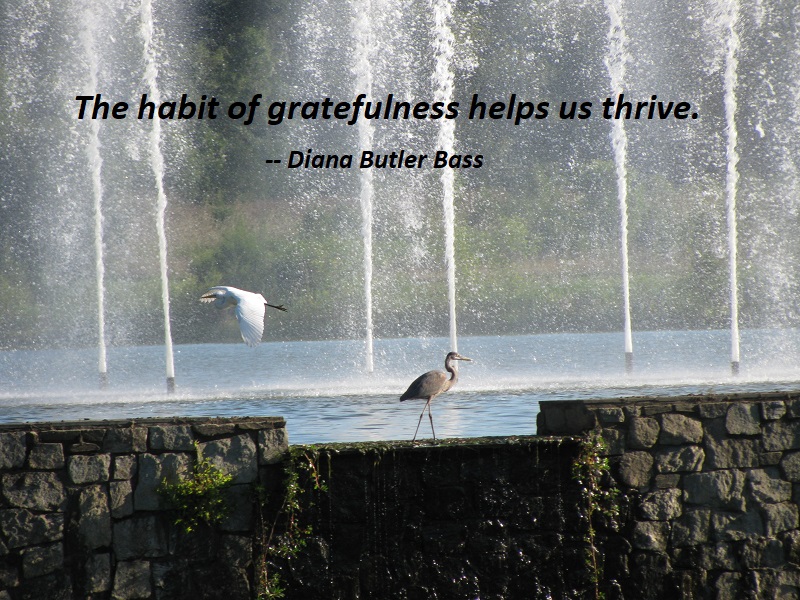Practice takes time. A well-known rule of practice says that to become an expert at something, you need to devote ten thousand hours to doing it. Gratitude is not a practice that can be counted in hours. Instead, it invites us to engage the longer arc of time. In order for it to become a habit, it asks that we attend to seeing time more fully: engaging the past more graciously, living more appreciatively now, and building thanks into the foundation of our future. Attending to our lives with hindsight, wide sight, and foresight moves gratefulness from emotion to ethic. Thus, gratitude may feel good — and those good feelings do good things for us — but as an ethical disposition, gratitude is a strong basis for creating a good life. The habit of gratefulness helps us thrive. It not only takes time, but it can change the way we experience the times of our lives.
— Diana Butler Bass, Gratitude, p. 70
Photo: South Riding, Virginia, August 15, 2013
